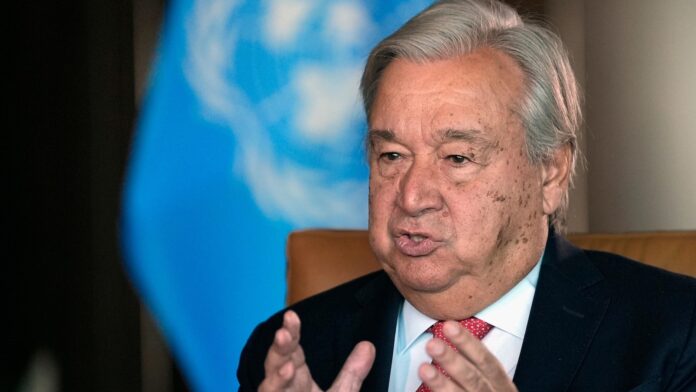UNITED NATIONS — A powerful UN advisory body said Thursday that global governance of artificial intelligence is “compelling” and urged the United Nations to lay the foundation for the first inclusive global institutions to regulate the fast-growing technology.
In a 100-page report, the group said AI is “transforming our world” and offers enormous potential for good, from opening up new scientific fields and accelerating economic growth to improving public health, agriculture and optimising energy grids.
But if AI is left unmanaged, its benefits could be limited to a handful of countries, companies and individuals, while even more powerful systems than those in existence today could “upend the world of work,” create autonomous weapons and pose a risk to peace and security.
The advisory body outlined principles that should guide the formation of new institutions to govern AI, including international law and in particular human rights law. It calls on all governments and parties involved in AI to work together to protect human rights.
The group made a number of broad recommendations, including the establishment of an international scientific panel on AI to gain global insight into its opportunities and risks, and a global dialogue on AI governance at the UN to anchor future institutions in human rights principles and international law.
The recommendations also call for a global AI fund to ensure the technology bridges the gap between rich and poor countries and advances the UN’s 2030 development goals, and for a ‘Standards Exchange’ to promote technical compatibility.
Currently, the report says, only seven of the 193 UN member states are party to seven recent high-profile AI governance initiatives, while 118 countries, mostly in the global South, are “completely absent” from any conversation.
Initiatives include: the very first legal framework of the European Union to regulate AI, which went into effect on August 1. This month, Group of 20 leading global economies agreed to establish guidelines for the development of artificial intelligence, calling for “ethical, transparent and responsible use of AI,” with human oversight and compliance with privacy and human rights laws. And California legislators — home to many of the world’s largest AI companies — recently passed legislation to regulate AI that rests with the governor.
The advisory board’s report was positive but cautious.
“As experts, we remain optimistic about the future of AI and its potential for good,” the report said. “However, that optimism depends on realism about the risks and the inadequacy of the structures and incentives that currently exist.”
The council stressed that “the technology is too important and the stakes too high to rely solely on market forces and a fragmented patchwork of national and multilateral action.”
UN Secretary-General Antonio Guterres appointed the advisory body last October, saying coordinated action is needed to prevent the threat of artificial intelligence from becoming an unchecked “monster.”
The group is comprised of 39 distinguished AI leaders from 33 countries, chosen from more than 2,000 nominations. They represent every region of the world, serve in their personal capacity, and include experts from government, the private sector, and civil society.
Guterres on Thursday praised the group’s work and expressed his full support for the recommendations “which provide a blueprint to build on existing efforts and together shape an international AI architecture that is inclusive, agile and effective – for today and the future.”
When the secretary-general told reporters last year that he planned to establish an advisory body, Guterres said he would welcome a new U.N. agency for artificial intelligence. He suggested the International Atomic Energy Agency, which is knowledge-based and has some regulatory powers, as a model.
But the advisory body said it did not recommend creating an agency.
Amandeep Singh Gill, the secretary-general’s envoy for technology and a member of the advisory body, told a news conference launching the report that there was no need for an agency for now, “but that doesn’t mean we would never need something like that.” The administration wants that possibility to be explored, he said.
The report was released ahead of the Summit of the Future that begins on Sunday, which has called on Guterres to try to unite the world’s divided nations and tackle the challenges and threats facing humanity, from conflict and climate change to artificial intelligence and UN reform.



